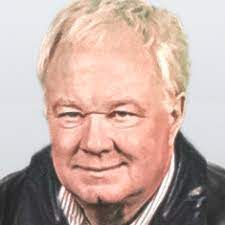The fellows and Board of Directors at the Frontier Centre for Public Policy are pleased to welcome William Brooks as a Senior Fellow. Bill will be joining a group of other fellows who are writing and speaking about innovative policies for improving the functioning of provincial and federal agencies. His area of expertise is education, specifically the policies, curriculum, teachers, and administrators that are needed to provide high-quality education to students. Bill lives in Halifax, NS, and he writes commentaries for The Epoch Times.
William Brooks
Senior Fellow
William Brooks is currently an opinion columnist for The Epoch Times and a Senior Fellow at the Frontier Centre for Public Policy. Bill earned an Honours BA in History at Loyola College, University of Montreal, as well as a B.Ed and M.Ed in the Teaching of History from McGill University. He taught in Quebec public high schools before joining Lower Canada College where he spent 25 years teaching history, economics and political science. At LCC, he was Head of the Social Sciences Department and Director of the school’s Pre-university Program. In civic life, Bill served for eight years as an elected public school commissioner on Montreal’s West Island and as an active member of the Board of Governor’s for the former Quebec Association of Protestant School Boards. In the 1980s and 90s, he co-founded the St. Lawrence Institute for the Advancement of Learning. He worked closely with the Freedoms Foundation at Valley Forge, Pennsylvania and members of the Committee for the Free World in New York City to develop leadership programs for students in free societies. In 2000, he co-founded the Center for the Advancement of Schools (CAS), a Montreal based consulting group specialising in educational policy assessment and the development of school success plans for the Province of Quebec. He later became Headmaster of the Junior School at Kuper Academy in Pointe Claire, Quebec and moved to Nova Scotia in 2007 to serve as Director of Advancement for the Sacred Heart School of Halifax. Bill is a former President of the Quebec Association of Teachers of History. His essays on cultural developments and the teaching of history can be found in publications like: The Epoch Times, The Montreal Gazette, The Ottawa Citizen, The Calgary Herald, Le Monde of Paris, Teaching History (UK) and The McGill Journal of Education. His early work is archived at http://discourseonline.ca



